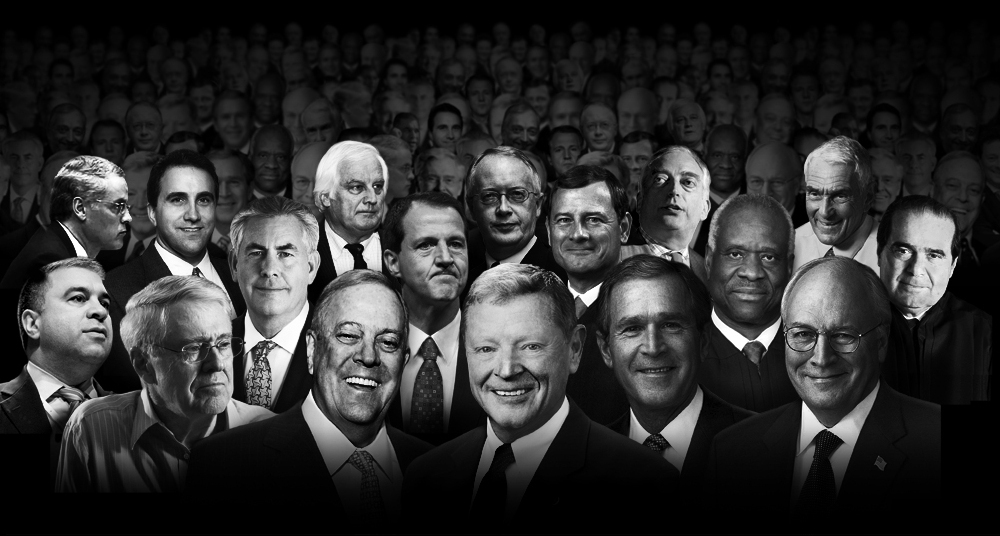Antonin Scalia has served as a Supreme Court Justice since 1986, when he was nominated by President Ronald Reagan. Considered one of the most conservative justices in the high court, Scalia has deep ties to the right-wing.
In 1976, Scalia joined former president Gerald Ford as a "distinguished fellow" at the American Enterprise Institute. One of the oldest and largest conservative think-tanks, AEI has received funding from ExxonMobil, the Koch Family Foundations, and the American Petroleum Institute. To this day, Scalia has maintained a relationship with the organization and continues to speak at AEI events.
During his time as a Supreme Court justice, Scalia has been embroiled in several controversies. These are the most notable:
- In 2000, during Bush v. Gore case, Scalia played an influential role in the court's 5-4 decision to stop the Florida re-count, which effectively decided the presidential election in favor of George W. Bush. Bush defeated Gore in Florida by 327 votes. At the time of the case, two of Scalia's sons worked at the firms of lawyers representing Bush.
- In 2004, the Supreme Court agreed to take up Vice President Cheney's appeal of the lower courts' decisions that the Vice President had to turn over information about his secret Energy Task Force. Three weeks after this decision, Scalia went on a hunting trip with Cheney, his long-time friend. Scalia was pressed to recuse himself from the case, but refused, saying, "I do not think my impartiality could be reasonably questioned."
The Supreme Court ruled the lower appeals courts had acted prematurely in there decisions and sent the case back to the Court of Appeals. Scalia, along with Justice Clarence Thomas desired to have the case end there, without Cheney having to disclose any information. However, the majority of the Court did not agree. In 2005, the U.S. Court of Appeals ruled Cheney did not have to release information about his Energy Task Force.
- In 2011, a Koch Industries memo was published showing that Justices Scalia and Thomas had previously attended an exclusive bi-annual retreat hosted by the Koch brothers. According to Charles Koch, the purpose of these retreats is to "review strategies for combating the multitude of public policies that threaten to destroy America as we know it."
Upon discovery of this memo, several groups asked for an investigation into whether or not Justices Scalia and Thomas should have recused themselves from the landmark campaign financing case Citizens United v. Federal Election Commission because they participated in private meetings, possibly during the case, with the Koch brothers, who fund political advocacy groups.
In 2009, in a controversial 5-4 decision, the Supreme Court ruled in favor of Citizens United, overturning a 100 years of law and opening the floodgates for corporate funding and advocacy in political campaigns. Both Scalia and Thomas voted in favor of Citizens United.




